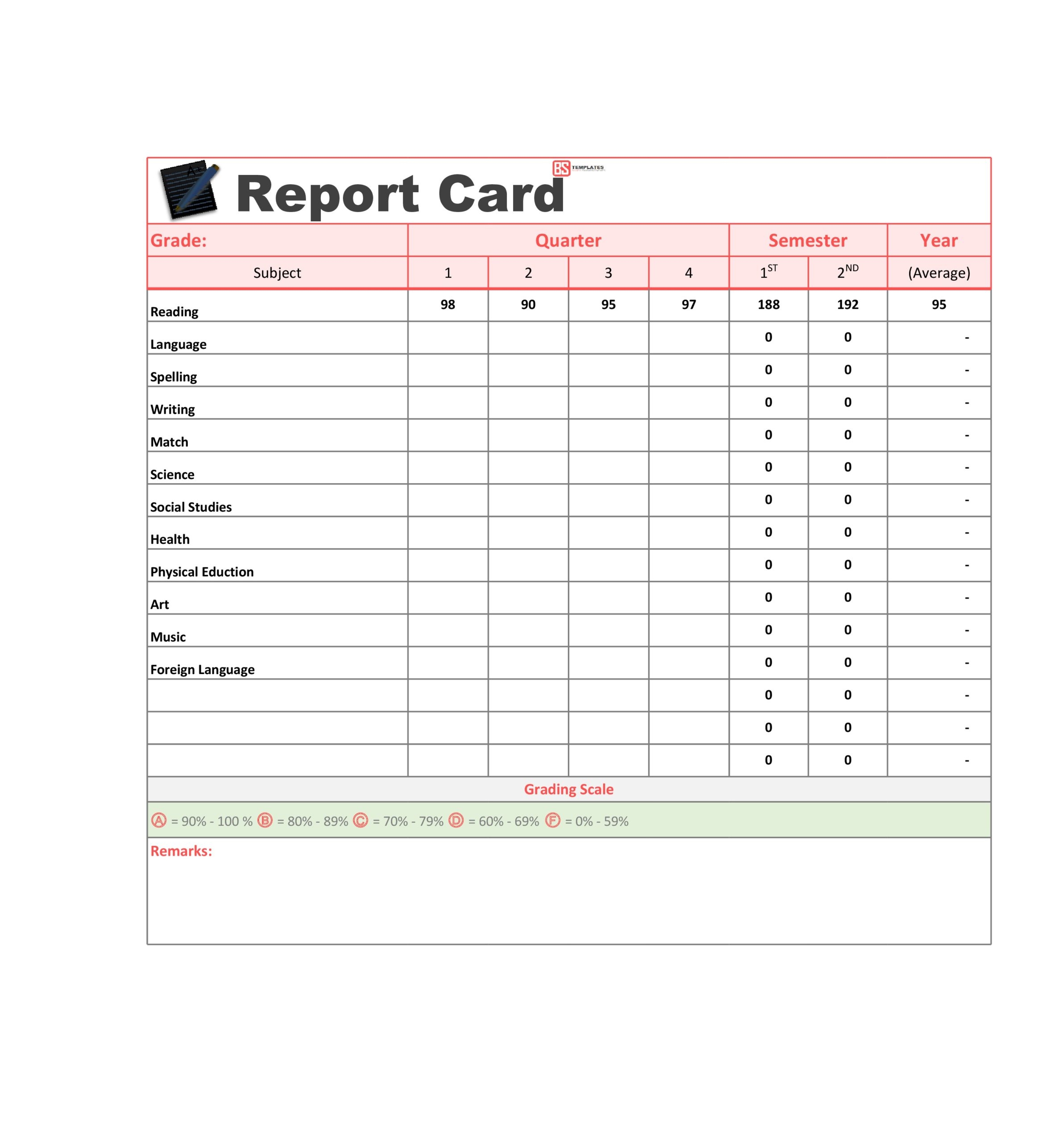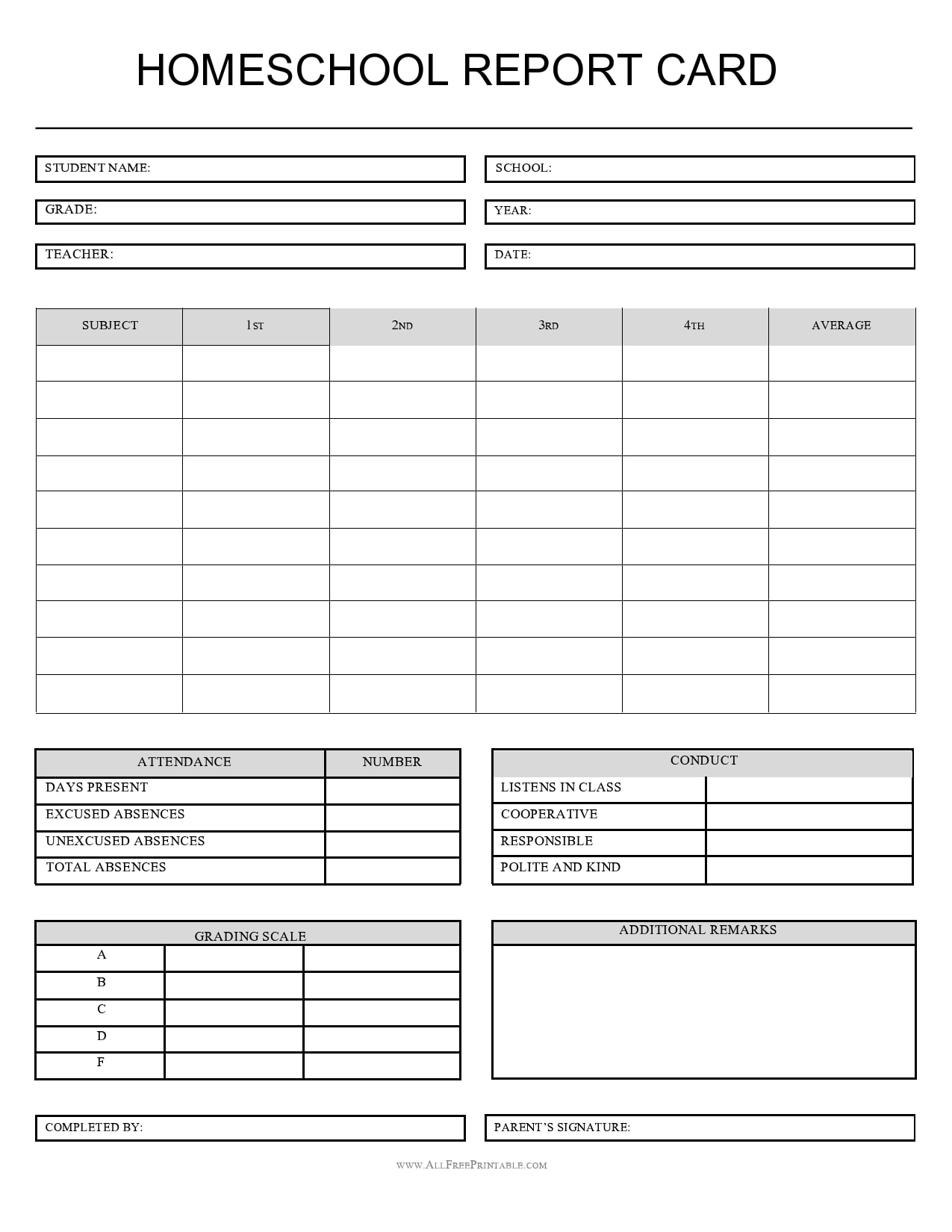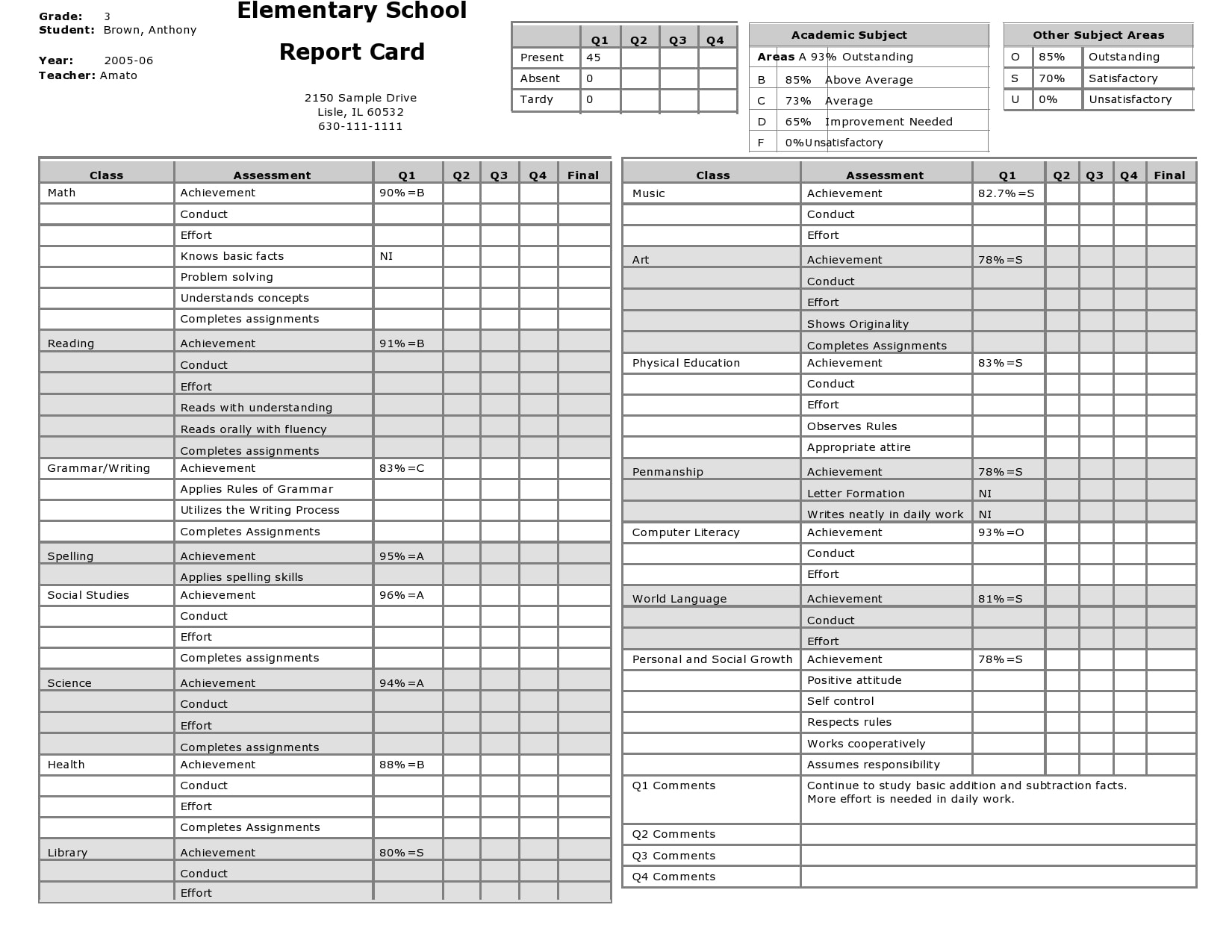Are you a homeschooling parent looking for a way to track your child’s progress and academic achievements? Look no further than the Homeschool Report Card. In this comprehensive guide, we will explore the various types of homeschool report cards, why they are essential, how to download and save them, and much more.
Why You Need a Homeschool Report Card
A Homeschool Report Card is a valuable tool for assessing your child’s academic performance and progress throughout the school year. It provides a clear snapshot of your child’s strengths, areas for improvement, and overall development. Additionally, a report card can help you set goals for your child, track their achievements, and communicate their progress to other educators or institutions.
Types of Homeschool Report Cards
Traditional report cards resemble those used in public or private schools and typically include grades, attendance records, and teacher comments. They are a popular choice for parents who want a familiar and structured format to evaluate their child’s academic performance.
Narrative report cards focus on providing detailed written feedback on a child’s progress rather than assigning grades. They are beneficial for parents who prefer a more personalized and holistic approach to assessing their child’s learning journey.
Progress reports are shorter and more frequent than traditional report cards, usually issued every few weeks or months. They highlight a child’s recent achievements, areas for improvement, and upcoming goals. Progress reports are ideal for parents who want to stay informed about their child’s academic progress on a regular basis.
How to Download and Save a Homeschool Report Card
There are several ways to create and save a Homeschool Report Card:
Many online platforms offer customizable templates for creating Homeschool Report Cards. Simply select a template that suits your needs, fill in the required information, and download or print the report card for future reference.
Consider creating a digital portfolio to store your child’s work samples, assessments, and progress reports. Digital portfolios are a convenient and organized way to track your child’s academic journey and maintain a record of their achievements.
There are numerous homeschooling apps available that offer features for creating, storing, and sharing Homeschool Report Cards. These apps often come with additional tools for lesson planning, scheduling, and tracking academic progress.
Conclusion
In conclusion, the Homeschool Report Card is a valuable tool for homeschooling parents to track their child’s academic progress, set goals, and communicate achievements. Whether you prefer a traditional report card format, narrative feedback, or progress reports, there are various options available to suit your needs. By utilizing Homeschool Report Cards effectively, you can ensure that your child receives a well-rounded education and stays on track with their learning goals.
As the homeschooling trend continues to grow, the importance of accurate and detailed record-keeping cannot be overstated. The Homeschool Report Card plays a crucial role in assessing your child’s academic performance, identifying areas for improvement, and celebrating their accomplishments. By incorporating Homeschool Report Cards into your homeschooling routine, you can provide your child with a structured and effective learning experience that prepares them for future success.


